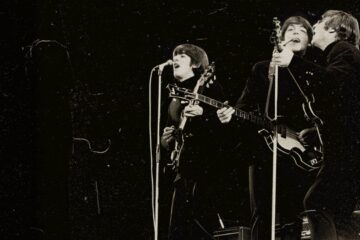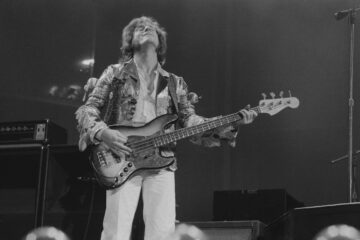If you’ve made art after 1954, then the chances are you’ve been influenced by Elvis Presley. You might not know that you have, but ‘The King’ changed pop culture to such an extent that there’s all the stuff before Elvis and all the stuff after. You can argue all you like about how that might be arbitrary and that the engine of arts in the postmodern age was awaiting a driver anyway, but the fact of the matter is, this slicked-back hip-swiveller was the idol of a revolution who clambered behind the wheel.
In this sense, it’s easy to see how the world was subsumed in his awe-inspiring aura. Priscilla Presley was no different. The issue was, she was merely 14 when she met her future husband. Elvis would go off to serve in the army in Germany, and they wouldn’t see each other again until he returned three years later, in 1962. Nevertheless, the age gap remains beyond nettlesome.
Thus, it is perhaps no surprise that when they did begin a relationship, Priscilla remained in awe of her partner. There was a ten-year age gap, and he was the King who changed the world as much as any monarch with a literal crown. However, his rule would wane, and retrospective eyes would be cast over him and his troublesome relationship. This is what caught the eye of Depeche Mode and spawned their opus.
When Martin Gore, Depeche Mode’s chief songwriter and guitarist, was leafing through Priscilla’s book, Elvis and Me, he put his finger on an issue that stretched beyond their relationship or any other problematic element—a factor that rang with more universality: turning an object of desire into an idol of pure devotion and dependence. With this in mind, he wrote the opus ‘Personal Jesus’.
As he explained: “It’s a song about being a Jesus for somebody else, someone to give you hope and care. It’s about how Elvis was her man and her mentor and how often that happens in love relationships – how everybody’s heart is like a god in some way, and that’s not a very balanced view of someone, is it?” With that in mind, he penned lyrics that Johnny Cash rightly identified as having a gospel overture to create an anthem that mixed eulogised longing with a darkly brooding melody.
While the lyrics are left obfuscated enough for personal corroborations to come into it, the verse, “Feeling unknown / And you’re all alone / Flesh and bone / By the telephone / Lift up the receiver / I’ll make you a believer,” documents the years when Elvis and Priscilla’s relationship was purely over the phone as she grew older and become enamoured with this demigod offering comfort and charm from overseas. This is put forth uncompromisingly by the band who faced the wrath of those who thought tackling a deity while leather-clad was too daring, but it’s also done without cynicism.
It whisks together to form a masterpiece that should how synths and technology could be used to create exalted atmospheres without ruling the songwriting as a master. In some ways, it was the 1980s second phase of the postmodernist mix of art and technology that Elvis heralded in the first place. And what’s more, Dave Gahan’s vocal take even has somewhat of greased grumble about it. Perhaps the biggest suturing irony of all, is that ‘The King’ would’ve no doubt done a cracking cover of ‘Personal Jesus’ himself.




